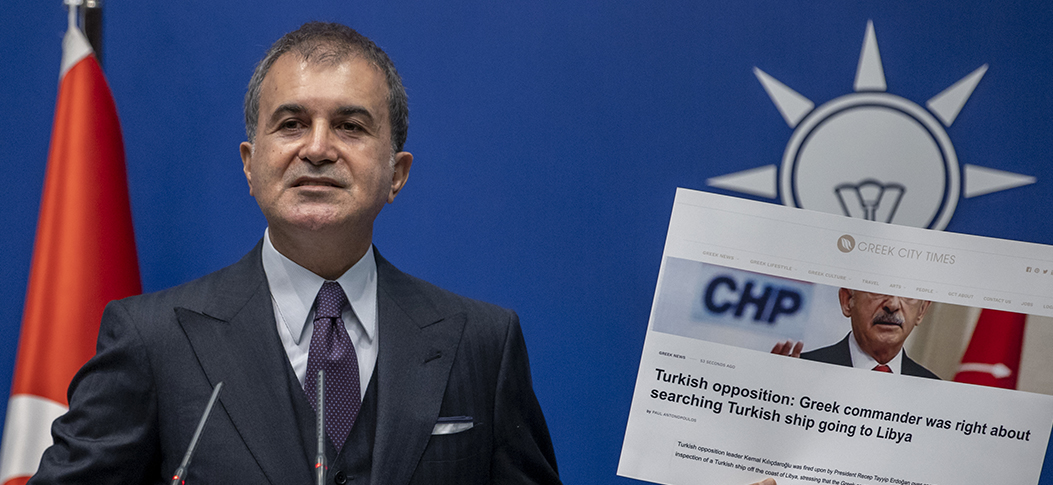“EU’s threat of sanctions against Turkey ’an abdication of reason”

Party Spokesperson Ömer Çelik held a press conference at the party’s headquarters in Ankara.
France has shown the most "abnormal and aggressive behavior" in violating international law, a top Turkish official said Tuesday.
Omer Celik, called a recent French parliamentary resolution to recognize Nagorno-Karabakh as a separate entity "null and void."
The motion passed by the French National Assembly last Thursday calls on the French government to recognize Nagorno-Karabakh – an internationally recognized Azerbaijani territory – as a separate republic.
It also calls on France and its European partners to re-evaluate Turkey’s EU membership process due to Ankara’s role in the recent conflict between Azerbaijan and Armenia.
Speaking to party members, Celik stressed that the French resolution, despite its symbolic status, was a provocative action that violates international law.
‘European democracy owes Turkey’
"European democracy owes Turkey," he said, adding that any thoughts of sanctions on Turkey – set to be considered at an EU leaders’ summit starting tomorrow – "are an abdication of reason."
France and French President Emmanuel Macron have yet to issue any statement on the fact that Nagorno-Karabakh is a territory of Azerbaijan, said Celik.
France has also made no statement saying that Armenia should withdraw from those regions or on the situation of Azerbaijanis who could not return home while under the Armenian occupation, he said.
"We consider [the resolution] an approach that was made out of concern to appeal to a completely narrow circle and to the radicals of the [Armenian] diaspora," Celik said.
Celik said the move showed the mentality of the French state.
Macron’s meetings with foreign states are directly only at provoking states against Turkey, he added.
Greece unfortunately does much the same, said Celik, with it constantly talking about diplomacy but then making provocative statements against Turkey, including their foreign minister, he said.
Since Oct. 9 Greece had not attended any of the NATO deconfliction meetings, he said.
"When it comes to the issue of migrants, European leaders visited Turkey four times in a month, [showing that] Europe can’t maintain its security without Turkey," Celik said.
By taking in so many refugees, Turkey saved European democracy, he said.
Celik urged the EU to act with caution and rely on its diplomacy, saying that the threat of sanctions should not be used.
Upper Karabakh
Relations between the former Soviet republics of Azerbaijan and Armenia have been tense since 1991, when the Armenian military illegally occupied Nagorno-Karabakh, also known as Upper Karabakh, a territory recognized as part of Azerbaijan, and seven adjacent regions.
When new clashes erupted on Sept. 27, the Armenian army launched attacks on civilians and Azerbaijani forces and violated several humanitarian cease-fire agreements.
During the conflict, Azerbaijan liberated several cities and nearly 300 settlements and villages from the Armenian occupation.
On Nov. 10 the two countries signed a Russian-brokered agreement to end fighting and work toward a comprehensive resolution.
The truce is seen as a victory for Azerbaijan and a defeat for Armenia, whose armed forces have been withdrawing in line with the agreement.

